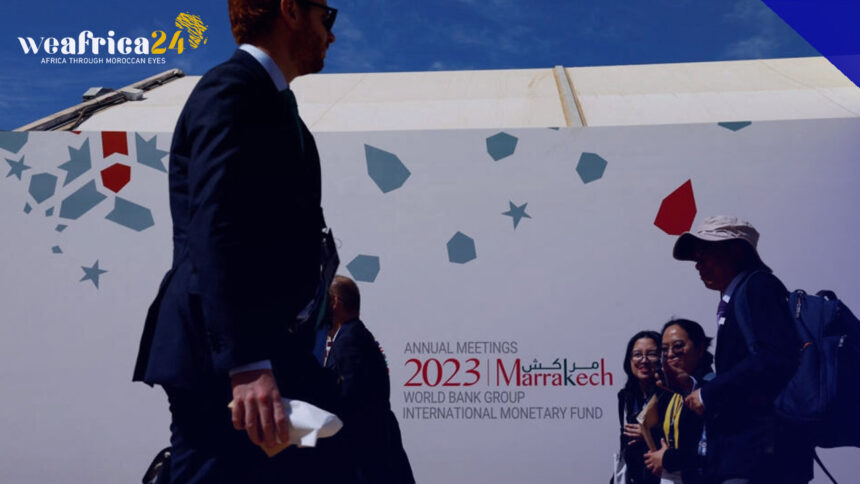The inadequacy of funding for projects and businesses in Africa is a prominent topic at the IMF and World Bank meetings in Marrakech, which convene until Sunday, October 15.
According to the IMF, achieving carbon neutrality by 2050 necessitates a doubling of private sector efforts in emerging and developing economies. In Africa, the primary challenge is the private sector’s occasional hesitancy to invest.
In 1973, in Nairobi, Robert McNamara, then President of the World Bank, called on wealthy nations to provide more effective assistance to impoverished countries: “If courageous decisions are made, development can accelerate.”
Yet, half a century later, Africa still grapples with funding shortages, with the private sector being a key area requiring action. Makhtar Diop, a Senegalese national, serves as the Director of the International Finance Corporation, a World Bank organization responsible for private sector operations.
“When I meet institutional investors in Africa, they tell us two things: we need larger projects, hence the regional agenda, and secondly, they express concerns about risks, like if there’s a coup somewhere, they don’t want to invest. We need to provide them with something. So what we do is offer them more guarantees and more grant funding to enable this,” explains Diop.
The goal is to enhance guarantee mechanisms. Over the past year, the IFC has increased its commitments to private enterprises by 30%. Diop emphasizes that while progress has been made, they remain unsatisfied until poverty levels are reduced.
Efforts are also being directed towards supporting small businesses, including taking more risks, increasing assistance, and facilitating connections between banks and entrepreneurs.







